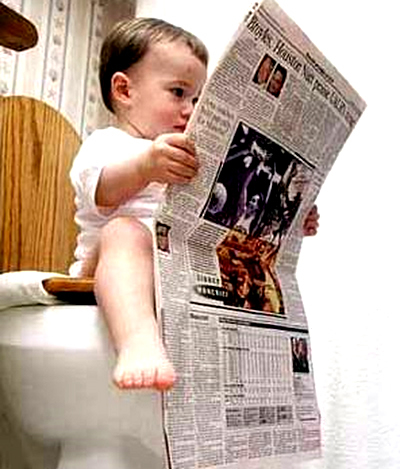Once again sunshine and well-warm temperatures this late-morning Tuesday here in California’s Central Valley — and one more episode of a pre-summer’s encounter with quickly-approaching summer.
In the trough of news cycling today through the InterWebs already, one on the popular backburner is media itself, especially journalism and the future of news reporting. In the last 50 years, journalism has gone from top-flight endeavors to nowadays of an MSM gone stagnant of real actual news gathering via the truth. My journalism career started in the mid-1970s and ended in the oughts at a twice-weekly newspaper that has since gone the route of a shitload of such entities in the last couple of decades.
Online used to be the space, but now it’s just another dead zone.
And in such a time of outright lying and disinformation, journalism is in a pickle:
Vice is going bankrupt, BuzzFeed News is dead. What business model will be sustainable? My new column. (In which I disclose I was recruited to head the BuzzFeed newsroom a few years ago) https://t.co/pRhvCWZ7tC
— Margaret Sullivan (@Sulliview) May 16, 2023
Media columnist Margaret Sullivan at the Guardian this morning took a look at our upheaval in news gathering and being successful. She refers to a 2009 article by Clay Shirky, noted journalism-technology writer, “Newspapers and Thinking the Unthinkable,” and the center of journalism today: the Internet.
Sullivan cases the current crisis:
In recent weeks and months, digital newsrooms have taken huge hits. BuzzFeed News suddenly shuttered, leaving scores of extremely talented journalists without employment (and lest you think of BuzzFeed as strictly a place for viral videos about cats, recall that its news division did plenty of prize-winning journalism over the years). Vox Media recently laid off 7% of its staff and raised money based on a valuation about half of what it was worth in 2015.
Then, on Monday, another major blow: Vice was filing for bankruptcy. A New York Times report was unsparing, calling Vice a “decayed digital colossus”, and noting that at one point it was thought to be worth a now-unfathomable $5.7bn.
It’s just as Shirky predicted it more than a decade ago, as he compared the coming of the internet to the arrival of Gutenberg’s printing press. Communication was utterly upended.
“This is what real revolutions are like. The old stuff gets broken faster than the new stuff is put in its place,” Shirky wrote. And, amid the ensuing chaos, it’s extremely hard to see what’s going next: “The importance of any given experiment isn’t apparent at the moment it appears, big changes stall, small changes spread.”
And so it is with the news media – journalism, let’s call it – in the digital age. Many of the biggest experiments are failing.
The problem in digital news? The audience, in many cases, was there. But the profits didn’t follow, or at least not in a sustainable way. Digital advertising revenue, once thought to be based on audience size, was going instead to social-media platforms, particularly Facebook.
Venture capitalists who had funded the news sites grew disenchanted and impatient.
“Many, many things went wrong,” Ben Smith, the former top BuzzFeed News editor, told Jon Favreau on his Offline podcast, noting in something of an understatement that “social media wasn’t going to work out the way we thought it was”. (Disclosure: I was recruited to succeed Smith at BuzzFeed News; I dropped out of the running early on.)
In fact, said Smith, whose new book, Traffic, traces the rise and decline of the digital-news dream, “the internet itself is kind of falling apart”. That may be overstating it, but Twitter users – and hundreds of laid-off journalists – would find it hard to disagree.
Sullivan sees a decent future for decent journalism, but on what path? An old-time newsroom ambition: ‘My deepest hope is that news consumers — also known as citizens — and philanthropists alike recognize the importance of quality reporting and are willing to support it. In this time of uncertainty, the importance of good journalism is the one sure bet.‘
Hear, here.
Deadline for history — journalism of fun and wonder:
Newsrooms of yore, or not, yet once again here we are…
 (Illustration out front found here.)
(Illustration out front found here.)